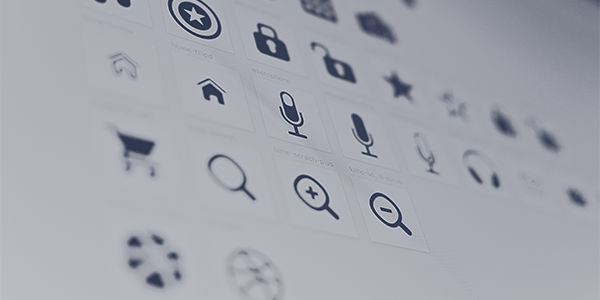
User interface (UI) and customer experience (CX) design are closely related yet quite different terms in the digital landscape. The difference is simple: user interface is the graphical properties that users of your website, app, or other digital interface will interact directly with, while customer experience is every encounter a customer has with your brand, company, or product.
Let’s break each term down separately.
What is UI?
A UI or “user interface” refers to a graphical layout (sometimes called a “GUI”) of your application or website. Your user interface contains buttons a user can click on to complete a certain task. Moreover, any other mode of interaction such as text, images, sliders, entry fields, and others are all a part of your UI design.
In short, any form of visual representation that offers interaction between the user and your application is all UI. Your UI design team (which may well be your UX design team) decides the appearance of your website or app by choosing the color scheme, text’s size and font, the shape of the buttons, etc.
UI in a nutshell:
-
- Application on digital products exclusively
- Visual aesthetics of your product or service such as app or website
- Uses a combination of typography, buttons, animations, and images
- Create a website or app that satisfies the visual demands of a customer

CX: customer experience
Customer experience is a broad concept where it focuses on what your customer will experience throughout the sales funnel, i.e., the first interaction to making a purchase and after-sales services.
This is not only about the quality of your product but how the customer felt at each stage. This includes how a customer progressed from being a visitor to building an emotional bond with your business and buying a product.
For example, let’s pretend that you are a business offering a software solution. This software does not represent your entire business, which also means that what services the software provides does not define the complete customer experience. But, it will involve a fair amount of UI design!
Your customer experience (CX) occurs through several channels such as:
-
- Advertisement
- Social media pages
- Marketing campaigns and materials
- Sales process
- The price tag
- Customer services
- And last but not least, the quality of your product
The collective experience of all the above-mentioned aspects of your business defines the CX of your brand. When you are working on designing a good customer experience (CX), you aim to focus on how your customers perceive your brand as a whole and now just for the product.
You can measure your CX on the following metrics:
-
- Overall satisfaction of the customers
- The willingness of the customers to recommend your brand
- The loyalty of the customer by preferring your brand over others
Conclusion
While UI and CX are obviously very different, they still share certain aspects to complement each other’s success. UI is a very concrete piece of CX, and recently contributes to the user’s experience (UX).
Remote usability testing tools, both moderated and unmoderated, are extremely insightful for evaluating both your user interface AND your customer experience design. While the usability testing strategies may differ somewhat, the focus is the same: understanding your user (and/or customer).



